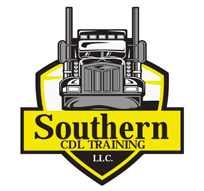November 12, 2025
In today's logistics-dominated world, the demand for skilled truck drivers is on the rise. Professional truck driver training services play a critical role in ensuring safety, efficiency, and competency on the roads. With an expanding global economy and an increase in e-commerce, the trucking industry remains a crucial component of supply chains worldwide. These training programs are designed to equip drivers with the necessary skills to navigate the complexities of a modern logistics environment. Through advanced training, drivers become adept at handling both everyday tasks and unexpected challenges, thereby enhancing the overall safety and reliability of road transportation.
Enhancing Road Safety
Reducing Accidents and Fatalities
Professional truck driver training services are pivotal in reducing road accidents and fatalities. By emphasizing practical driving skills and theoretical knowledge, these programs prepare drivers to make informed and quick decisions in hazardous situations. Training courses often simulate various traffic conditions, allowing drivers to practice in a controlled environment. This hands-on experience is crucial in building confidence and competence. As drivers learn to anticipate and mitigate potential risks, the incidents of accidents decrease, creating safer roads for all users.
Understanding Road Regulations
Another essential aspect of training is ensuring that drivers have a comprehensive understanding of road regulations. The laws governing commercial driving can vary significantly from one region to another, necessitating thorough training. Drivers must be familiar with speed limits, weight restrictions, and permissible routes for different types of vehicles. Training services offer courses focusing on these regulations, promoting compliance and reducing legal liabilities for drivers and their employers. Understanding and adhering to these rules are fundamental aspects of responsible driving.
Practicing Defensive Driving Techniques
Defensive driving techniques form a core component of professional truck driver training services. Drivers are trained to remain alert, anticipate other vehicles' actions, and react appropriately to avoid collisions. By focusing on maintaining a safe following distance, proper use of mirrors, and recognizing hazardous situations, drivers can minimize risks on the road. This proactive approach not only enhances safety but also instills a mindset of vigilance, which is crucial for long-haul drivers who spend extended periods behind the wheel. Mastery of these techniques contributes significantly to the reduction of road incidents.
Having Emergency Response Preparedness
In addition to preventive measures, emergency response preparedness is a critical component of driver training. Drivers are taught how to handle mechanical failures, adverse weather conditions, and other emergencies that may arise during transit. This includes knowing when and how to use emergency equipment, such as flares and warning signs. Quick and effective responses can prevent situations from escalating, safeguarding the driver's well-being and reducing potential damage. Training in emergency preparedness not only benefits the individual driver but also protects the cargo and the broader public.
Ensuring Driver Competence
Obtaining a Comprehensive Skill Assessment
Ensuring driver competence begins with a comprehensive skill assessment, which is often the first step in professional training programs. These assessments evaluate a driver's current abilities, identifying strengths and weaknesses. From this baseline, tailored training plans are developed to address specific areas requiring improvement. This personalized approach allows for a focused learning experience, resulting in faster skill enhancement and better overall competency. Regular assessments during the training process also ensure that progress is being made and that drivers are developing the necessary skills to meet industry standards.
Knowing Vehicle Mechanics
An understanding of vehicle mechanics is another crucial aspect of driver competence. Knowledge in this area enables drivers to conduct basic maintenance checks and identify potential mechanical issues early. Professional training programs provide instruction on engine functionality, brake systems, and other critical vehicle components. This information empowers drivers to communicate effectively with mechanics and seek timely repairs, minimizing downtime and improving safety. By mastering these mechanical insights, drivers contribute to the efficiency and reliability of their operations.
Practicing Loading and Unloading Protocols
Loading and unloading protocols are fundamental to the role of a truck driver. Proper techniques prevent cargo damage and ensure the safety of both the driver and others during transport. Training programs cover best practices for securing loads, weight distribution, and safe handling procedures. Effective training in this area reduces the risk of cargo-related accidents and enhances operational efficiency. Understanding these protocols is especially important for specialized freight, such as hazardous materials, which require additional precautions and regulatory compliance.
Knowing Route Planning and Navigation
Successful truck driving also hinges on efficient route planning and navigation. Professional training imparts strategies for optimizing routes to save time and fuel while avoiding traffic congestion and hazardous conditions. Drivers learn to use both traditional maps and modern GPS technology to find the most effective paths. As a result, they can reduce delivery times and enhance customer satisfaction. Additionally, well-planned routes contribute to lower fuel consumption, aligning with industry efforts to promote sustainability.
Improving Fuel Efficiency
Understanding Aerodynamics
Fuel efficiency is an important goal for the trucking industry, and understanding aerodynamics plays a significant role in achieving it. Truck driver training services teach drivers about how air resistance affects fuel consumption and how to minimize it through proper driving habits. Techniques such as maintaining steady speeds and minimizing idle time contribute to lower fuel use. Drivers are also educated on the design features of modern trucks that enhance aerodynamics. By applying this knowledge, drivers can significantly reduce operating costs and environmental impact.
Having Effective Gear Management
Effective gear management is another critical aspect of maximizing fuel efficiency. Training programs emphasize the importance of selecting the appropriate gears for varying conditions to optimize engine performance. Proper gear usage allows for smoother acceleration and reduces unnecessary fuel consumption. Drivers learn to anticipate road conditions and adjust gears preemptively, enhancing both efficiency and vehicle longevity. This skill not only conserves fuel but also improves operational productivity through reduced wear and tear on the truck.
Performing Speed Regulation Techniques
Habits involving speed regulation directly influence fuel efficiency. Training services instill the importance of maintaining consistent, optimal speeds to avoid excessive fuel use and prevent wear on the engine. Through simulated driving exercises and real-world scenarios, drivers practice achieving a balanced approach to speed, incorporating factors such as traffic flow and road conditions. This facet of training aligns with broader safety initiatives and regulations, as adhering to speed limits reduces the likelihood of accidents. Efficient speed regulation is an integral component of eco-friendly driving.
Using Modern Fuel-Efficient Technologies
Professional training programs address the use of modern fuel-efficient technologies as part of their curricula. With advancements in vehicle manufacturing, new technologies can significantly enhance a truck's fuel economy. Training emphasizes understanding and utilizing features such as adaptive cruise control, hybrid engines, and real-time fuel monitoring systems. Knowledge and proficiency in these technologies enable drivers to leverage the full potential of their vehicles. As a result, they can reduce costs, minimize environmental footprint, and increase profitability.
Professional truck driver training services are indispensable for developing skilled drivers who are crucial to sustaining safe and efficient logistics operations worldwide. According to the U.S. Bureau of Labor Statistics, employment of heavy and tractor-trailer truck drivers is projected to grow 4 percent from 2024 to 2034, about as fast as the average for all occupations. This data reinforces the need for robust training as the foundation upon which the future of trucking will be built. To get started with our truck driver training services, call us today!


